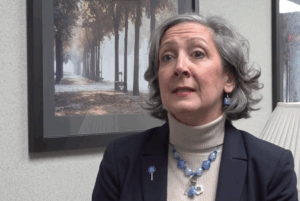
Sue Williams, Children’s Trust CEO
By Becky Budds
COLUMBIA, S.C. — There are about 70,000 kinship caregivers in South Carolina, according to the South Carolina Department of Social Services.
A “kinship caregiver” is a relative or close family friend who takes in another relative’s child after the child has been removed from their home.
Daryl McCulley has been raising his grandchild for 13 years.
“Originally we anticipated it being that way– temporary and we realized in a couple of months that it wasn’t temporary,” said McCulley.
The couple was able to handle the financial toll, with their other children out of the house, but McCulley understands that’s not the case for every family.
“These kids come to people in the middle of the night. Literally come to a grandparent or a family member in the middle of the night with whatever’s on their back,” said McCulley.
Foster families in South Carolina are paid between $619 and $674 a month, depending on the age of the child. Kinship caregivers do not receive a stipend.
“The only way to get a separate subsidy after the case closes is to adopt the child, so you’d have to terminate the parental rights of the mother and father and formally adopt them as your own,” said Case Supervisor at Richland County Court Appointed Special Advocated for Children TaKara Jones.
But a new bill at the State House could change that.
The Kinship Guardianship Assistance Program (kinGAP) would allow existing caregivers to become permanent legal guardians of children. They would receive much-needed financial assistance, without the need to remain in the Foster Care System.
The Department of Social Services is asking for $1.6 million in the state budget to fund the program.
“40 states have already done this, so South Carolina is just coming in line being able to use those federal dollars,” said Children’s Trust of South Carolina CEO Sue Williams.
In 2008, Title IV-E of the Social Security Act was amended to allow states to make guardianship assistance payments to relatives who assume kinship guardianship of eligible children whom the relatives have cared for as kinship foster parents.
“I think a lot more people would be willing to take in their family members if they could receive some type of financial assistance,” said Jones.
Jones emphasized this program is about finding permanent homes for children, and not just anyone would be granted guardianship.
“You know you have to show willingness and ability to care for this child for an extended period of time and so that the children don’t re-enter because that’s worse,” said Jones.
Child advocates agree the impacts of this law would go beyond money.
“We always say that children do well when families do well and families do well when they live in communities that support them and this bill would certainly do that,’ said Williams.
“It bridges a mental health gap when it comes to these children,” said Jones. “They get to stay with family, they get to stay in an environment you know at night I can climb in the bed with auntie because I’m crying. they’re not going to get that same security with a foster home.”
The program would also allow children and youth to maintain eligibility for Medicaid.
DSS is also asking lawmakers for $8.8 million in the budget to increase pay rates for group homes.
They want another $2 million to increase reimbursements Foster Families Receive each month by about $30.
Source: WLTX
